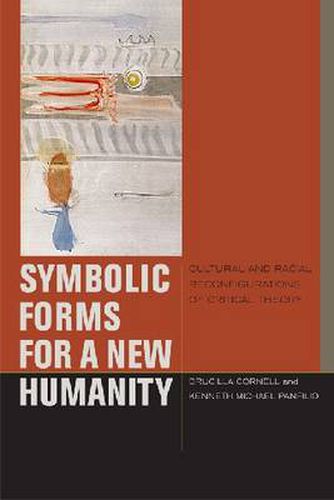Readings Newsletter
Become a Readings Member to make your shopping experience even easier.
Sign in or sign up for free!
You’re not far away from qualifying for FREE standard shipping within Australia
You’ve qualified for FREE standard shipping within Australia
The cart is loading…






In dialogue with afro-caribbean philosophy, this book seeks in Cassirer’s philosophy of symbolic forms a new vocabulary for approaching central intellectual and political issues of our time. For Cassirer, what makes humans unique is that we are symbolizing creatures destined to come into a world through varied symbolic
forms; we pluralistically work with and develop these forms as we struggle to come to terms with who we are and our place in the universe.
This approach can be used as a powerful challenge to hegemonic modes of study that mistakenly place the Western world at the center of intellectual and political life. Indeed, the authors argue that the symbolic dimension of Cassirer’s thinking of possibility can be linked to a symbolic dimension in revolution via the ideas of Frantz Fanon, who argued that revolution must be a thoroughgoing cultural process, in which what is at stake is nothing less than how we symbolize a new humanity and bring into being a new set of social institutions worthy of that new humanity.
$9.00 standard shipping within Australia
FREE standard shipping within Australia for orders over $100.00
Express & International shipping calculated at checkout
In dialogue with afro-caribbean philosophy, this book seeks in Cassirer’s philosophy of symbolic forms a new vocabulary for approaching central intellectual and political issues of our time. For Cassirer, what makes humans unique is that we are symbolizing creatures destined to come into a world through varied symbolic
forms; we pluralistically work with and develop these forms as we struggle to come to terms with who we are and our place in the universe.
This approach can be used as a powerful challenge to hegemonic modes of study that mistakenly place the Western world at the center of intellectual and political life. Indeed, the authors argue that the symbolic dimension of Cassirer’s thinking of possibility can be linked to a symbolic dimension in revolution via the ideas of Frantz Fanon, who argued that revolution must be a thoroughgoing cultural process, in which what is at stake is nothing less than how we symbolize a new humanity and bring into being a new set of social institutions worthy of that new humanity.